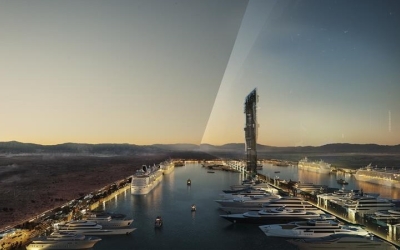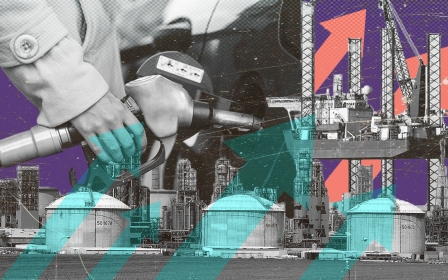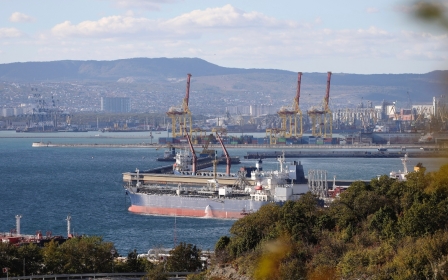Saudi Arabia tops India as world's fastest growing major economy

Saudi Arabia has overtaken India as the fastest growing major economy in the world, with it’s non-oil sector growing at the fastest rate in more than one year.
The kingdom’s non-oil economy grew an annual 6.2 percent during the fourth quarter of last year, the highest level since the third quarter of 2021, according to the General Authority for Statistics. The oil economy rose 6.1 percent, data released on Tuesday showed.
Overall, the economy grew an estimated 8.7 percent last year, according to the Saudi government, in line with forecasts from the International Monetary Fund, placing the oil-rich kingdom well ahead of India’s 6.8 percent rate of growth.
Speaking at the World Economic Forum in Davos in January, Kristalina Georgieva, head of the IMF, said the fund looked at Saudi Arabia’s rate of growth “with gratitude” as a benefit for the world economy.
Saudi Arabia is chalking up some of its fastest economic growth in decades amid an oil-revenue windfall as the war in Ukraine drives up energy prices.
The kingdom’s growth stands out at a time when much of the world has braced for a recession. Saudi Arabia and other Gulf states have generally avoided the worst of historic global inflation, exacerbated by rising energy prices.
The kingdom is using its oil-boom windfall to plow ahead with mega-projects like the $500bn Neom mega-city, a new airport in Riyadh, and the Red Sea Project.
Riyadh is also bidding for strategic minerals and mining assets abroad while investing in everything from Korean anime to US tech stocks. In 2021, it acquired British football club, Newcastle United.
2023 downgrade
Saudi Arabia’s Public Investment Fund (PIF), which is chaired by Crown Prince Mohammed bin Salman, is at the forefront of attempts to diversify the kingdom's economy away from its reliance on fossil fuels.
The crown prince has introduced some social reforms, opening the conservative kingdom up to western entertainment and attempting to make it more attractive to global businesses, even as he pursues a severe crackdown on dissent at home.
While the IMF has praised Saudi Arabia’s progress in diversifying its economy, its recent downgrade of the kingdom’s 2023 growth shows how fossil fuels continue to dominate its economy.
On Tuesday, the IMF forecast Saudi Arabia to grow at 2.6 percent in 2023, underperforming the wider region, and marking a 1.1 percentage point drop from the fund's October estimate.
"The downgrade for 2023 mainly reflects lower oil production in line with an agreement through OPEC+, while non-oil growth is expected to remain robust," the IMF said in a report.
Middle East Eye delivers independent and unrivalled coverage and analysis of the Middle East, North Africa and beyond. To learn more about republishing this content and the associated fees, please fill out this form. More about MEE can be found here.






